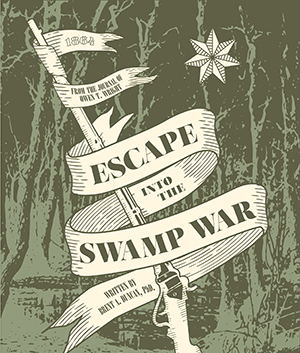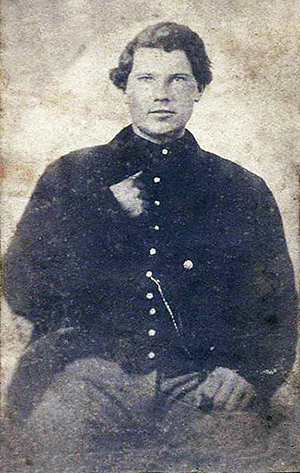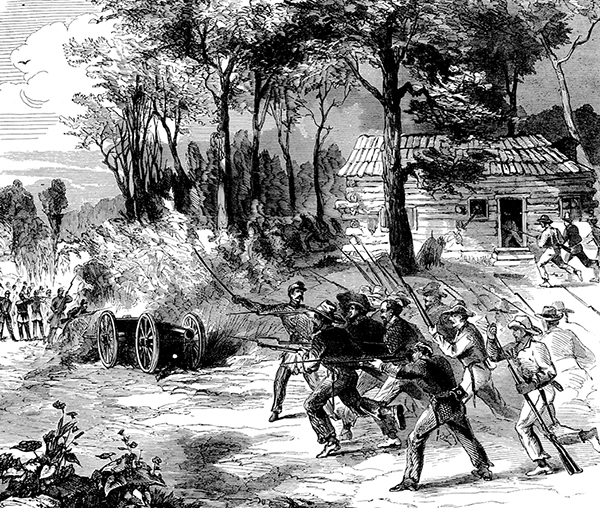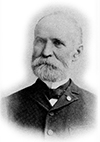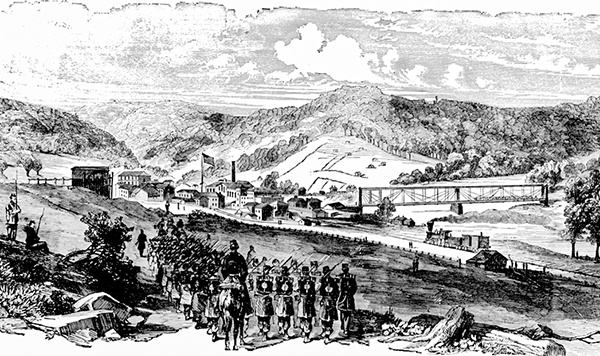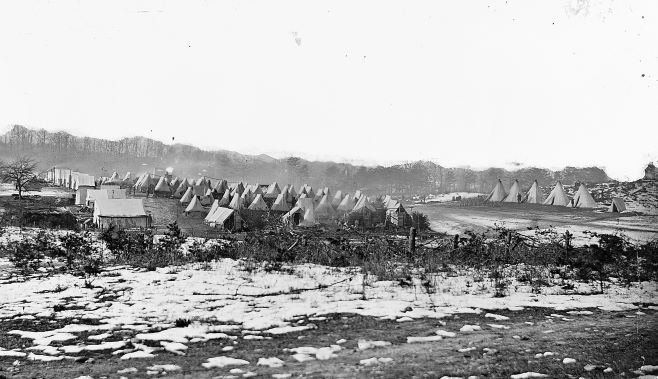“The enemy behind us,” President Lincoln said, “is more dangerous than the enemy before us." He was referring to what Owen called “the infernal Copperheads.” [See 12 The infernal Copperheads]
Partly because they tended to be more sympathetic to the South than to the North, the Democratic party shattered during the secession crisis of 1860. As the war effort dragged on, some Democrats gained political favor by advocating peace at any price. “Defeat, debt, taxation, sepulchers, these are your trophies,” said Clement L. Vallandigham, a leader of the anti-war movement. “The war for the Union is…a most bloody and costly failure.” [1]
Led by subversives like Vallandigham, anti-Union, pro-slavery groups with names like Knights of the Golden Circle, Order of American Knights, and Sons of Liberty devised plots to force an end to the war in favor of the Confederacy. They called themselves Peace Democrats. About such movements, Lincoln would say: "America will never be destroyed from the outside. If we falter and lose our freedoms, It will be because we destroyed ourselves."
Since “peace at any price” meant death to the Union and victory for the Confederates, the growing influence of the Peace Democrats gave hope to the Confederacy that the North would abandon the struggle to save the Union. Having a “fifth column” behind the enemy lines encouraged the Confederates to devise strategies to support the Peace Democrats and maximize their influence over Union politics. The Peace Democrats prolonged the war by encouraging the south to continue fighting in the hope that the North would abandon the struggle. They encouraged Union soldiers to desert, helped Confederate prisoners to escape, and received funding and help from the Confederacy [2, 6]
When their enemies called the Peace Democrats venomous copperheads for subverting the cause of the Union, the Peace Democrats proudly adopted the name “Copperheads” and pinned on their lapels the heads of liberty snipped from copper pennies.[3]
An active and vocal faction of the Democratic party, the Peace Democrats asserted [4]:
- The Republicans had provoked the South into secession;
- Republicans were waging the war to establish their own domination, suppress civil and states rights, and force racial equality on the citizens of the United States, and;
- The military had failed and would never restore the Union.
An ardent abolitionist and defender of the Union, Owen wished "the infernal Copperheads of the north would cease their Hyena like howls and would sneak off to their dens like a despicable skunk." [See 12 The infernal Copperheads]
Copperhead influence came to a peak during the election of 1864. The Democrats included the anti-war, anti-abolitionist (pro-slavery), and anti-Republican views of the Peace Democrats in their platform. They became key drivers behind a series of election-year riots throughout the North, most notably the New York draft riot. Fueled by Democratic rhetoric that Lincon's war to free slaves would take the jobs of impoverished Irish immigrants, mobs of rioters targeted blacks, Protestants, and pro-Union businesses and newspapers. Lincoln sent Federal Troops to quell the violence and ensure a peaceful draft. Owen was among the troops Lincoln pulled from the front lines of Gettysburg to ensure a peaceful draft. [See Hard fighting to pleasant living: New York draft riot becomes race war]
Meanwhile, popular among the Union soldiers and citizens, the Democrats nominated Lincoln's former general, George McClellan, as their candidate for president. With the growing influence of the Peace Democrats, violent protests in the cities, and a popular McClellan as his competition, Lincoln feared for his reelection.[5] Fortunately, for Lincoln and the Union, a series of decisive victories by the Union army insured his reelection and the Copperhead plots came to nothing. With the defeat of the Peace Democrats, all hope of victory was lost for the Confederacy, and the end of the war began.
[1] Ketchum, Am Heritage CW, page 497
[2] Faust, Encyclopedia of the Civil War, page 564.
[3] Ward/Burns, The Civil War, page 188.
[4] Faust, Encyclopedia of the Civil War, page 564.
[5] Lincoln Speeches and Writings—1859-1865, page 612.
[6] Tidwell, Confederate Covert Action in the American Civil War.


